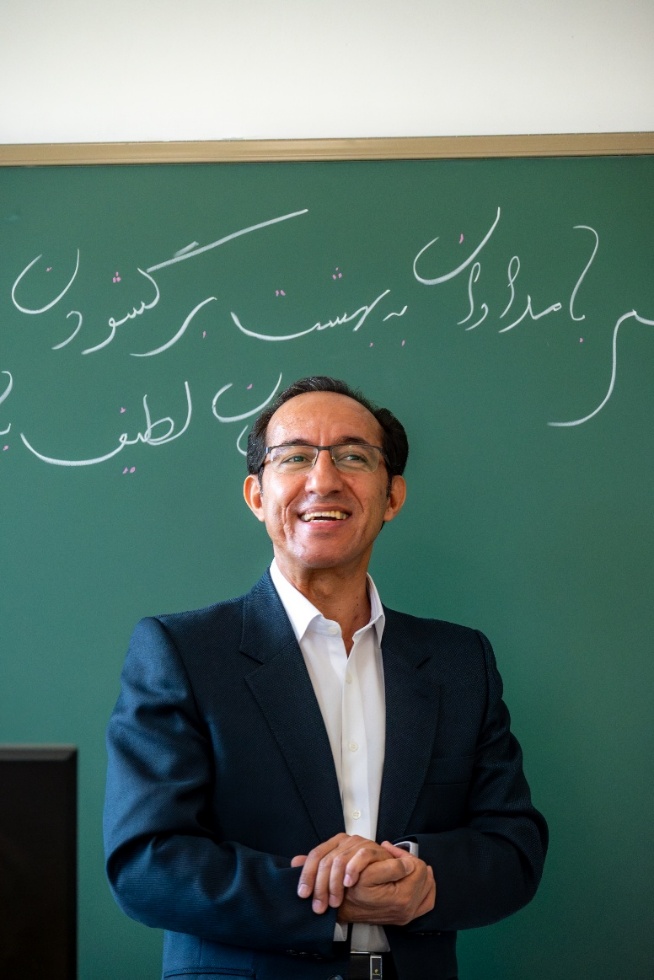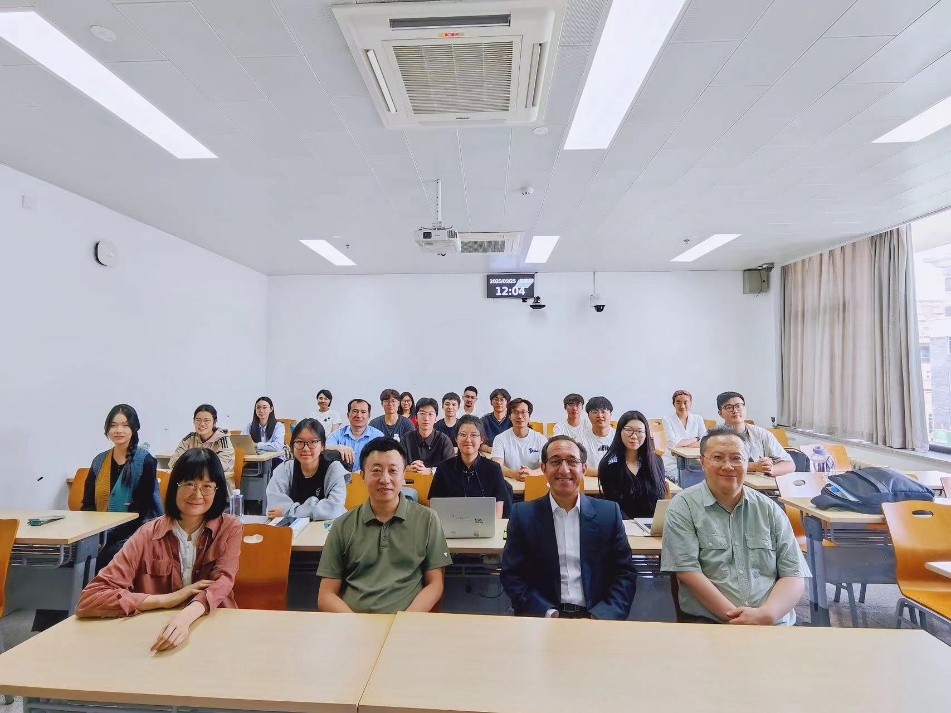On September 25, 2025, Dr. Mohammadamir Jalali, Director of Department of Persian Language and Literature and Director of China Studies Center at Iran’s Allameh Tabataba’i University, was invited to deliver a lecture at Peking University (PKU) titled "Elements of Chinese Culture in the Collection of the Carpet Museum of Iran." The lecture was hosted by Associate Professor Shi Guang, Director of Institute of Iranian Culture Studies and Head of the Persian Language and Culture Unit at PKU.

Dr. Mohammadamir Jalali
Dr. Jalali began with a brief history of the Carpet Museum of Iran. He first interpreted several Persian terms related to ''carpet,'' and introduced the distinctions of craftsmanship between different branches of Iranian textiles – such as flat-weaves, striped woven rugs, and pile-woven carpets – and traditional handmade carpets. Subsequently, through an analysis of images and woven inscriptions on specific carpets from the museum's collection, he elaborated on their narrative and non-narrative pictorial motifs, Persian woven inscriptions, and the instances where image and text appear together. Furthermore, Dr. Jalali analyzed typical motifs found on these carpets that have connections to China, such as verses of poetry, phoenix patterns, dragon patterns, dragon-head patterns, elephant-trunk patterns, Chinese-style floral and leaf patterns, and lion-tiger patterns. This demonstrated the significant influence of Chinese art upon ancient Iranian carpet culture and served as strong evidence of the depth of historical exchange and mutual learning between the two countries. During the discussion session at the end of the lecture, the attending faculty members and students engaged in a lively discussion with Dr. Jalali on various elements present in ancient Iranian carpets.

At the lecture
This lecture was the 27th installment in the PKU "Great Literature of the East" lecture series. It was jointly organized by the Center for Studies of Eastern Literature, the Undergraduate Talent Training Base for Less Commonly Taught Languages, the Institute of Eastern Studies, and the Institute of Iranian Culture Studies of PKU. ThePersian Language and Culture Unit, West Asian Studies Department, School of Foreign Languages was the executive organizer. The lecture attracted faculty members and students from the Persian language program in the School of Foreign Languages of PKU, as well as scholars and experts from both within and outside the university.
By Wu Xiaolong
Photo by Wu Xiaolong
Translated by Qu Sizhe
